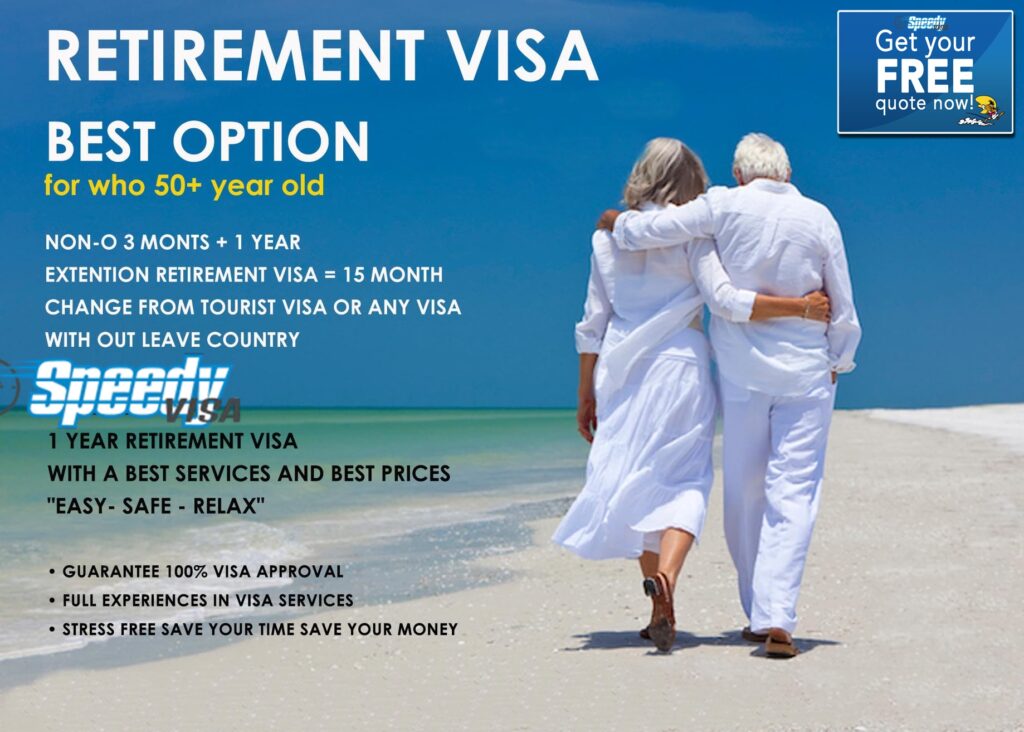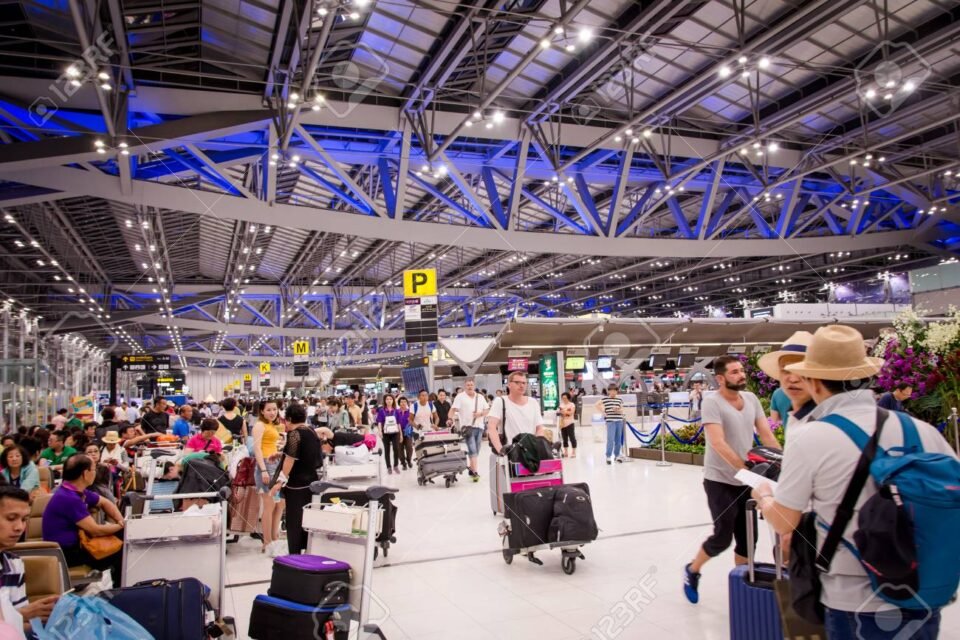Prime Minister Prayut Chan-o-cha has asked the public and businesses to strictly comply with disease controls, and protesters not to damage the national image, to ensure the country’s reopening on Monday is a success.
Speaking after chairing a meeting of the Centre for Covid-19 Situation Administration at Government House on Friday, Gen Prayut said he needed the cooperation of all parties for the reopening to visitors from 46 countries.
“The government has prepared many appropriate measures. Everyone must follow them to the fullest extent and avoid the risk of transmission of Covid-19,” he said.
The prime minister said mandatory quarantine would be conditionally lifted for arrivals by air from the specified countries, but would remain for arrivals by land and water.
“Officials must be serious about regulating arrivals through the other means and keeping out illegal migrants. Neighbouring countries will be requested to cooperate,” Gen Prayut said.
The government would gradually reopen checkpoints for border trade. Buyers and sellers would not meet in person, but deliver goods via no-contact areas.
He had instructed medical personnel to be ready to respond, including having field hospitals and quarantine areas ready, in the event of Covid-19 outbreaks after the country reopens.
The government had already placed an order for the anti-viral Covid treatment drug molnupiravir so that the country would have a supply for quick administration. The government was also buying favipiravir and had ordered the local development of herbal medicines for initial treatment of Covid-19 patients.
He assured the people that the government would prevent an excessive influx of foreign visitors. The “sandbox” reopening model introduced in Phuket in July proved to be effective and many other countries were adopting it, Gen Prayut said.
The prime minister said he had announced Thailand’s reopening in advance so that it could be one of the first destinations of international travellers during the high season.
At the same time, he asked demonstrators to cooperate by protecting the national image and avoiding any action that would discourage visitors.
“The most important thing for the government is to let people resume their livelihoods and for supply chains of raw materials to function along with the country’s reopening,” Gen Prayut said.
Thailand was among the top countries in providing the best care for people during the Covid-19 crisis, behind only a few rich countries, he said.
Rules for travellers clarified
The Department of Consular Affairs and the Tourism Authority of Thailand have clarified rules governing international arrivals when the country opens on Monday.
Travellers will be categorised into three groups, according to Naruechai Ninnart, director of the Protection of Thai Nationals Abroad Division, Department of Consular Affairs.
The first are fully vaccinated visitors from 46 countries (www.thaiembassy.com). They must stay one night in either a Safety and Health Administration Plus (SHA+) certified hotel or an alternative quarantine hotel for a RT-PCR test and wait for the result.
“They can travel anywhere in Thailand if the result is negative,” Mr Naruechai said.

The second group is fully vaccinated visitors from countries not on the list of 46. They must stay in SHA+hotels for seven nights in a “sandbox” area, he said.
The sandbox scheme will be expanded from Phuket to cover 17 provinces in total, starting on Nov 1, including Bangkok, Chiang Mai and Krabi. (Some provinces are limited to some districts.)
“If visitors pass the second Covid-19 test [on Day 6 or 7], they can travel anywhere in Thailand after completing seven nights in the sandbox area,” he said.
The third group is unvaccinated or not fully vaccinated travellers. They are required to stay in alternative quarantine hotels for 10 nights. When they pass the second Covid-19 test on Day 8 or 9, they can travel to other places in Thailand.
CoE vs Thailand Pass
Before arriving, foreign travellers must apply for a Thailand Pass which will be introduced on Nov 1 at 9am (local time) to replace the Certificate of Entry (CoE). A portal site (https://tp.consular.go.th) is where visitors need to submit required documents including a vaccination certificate and medical insurance with minimum coverage of US$50,000 (about 1.6 million baht).
“Thailand Pass will be a quicker verification process than CoE but it still requires one to seven days before the Thailand Pass QR code can be issued to applicants,” Mr Naruechai said.
The approval process will be quick if vaccine certification is in the digital format, he said.
It means travellers who want to fly to Thailand on Nov 1 or until Nov 7 still need to apply for a CoE.
Travelling with children
Children under 12 travelling with their parents are not required to have a vaccine certificate. If the parents are fully vaccinated and have a certificate, the certificate also covers their kids, Mr Naruechai said.
For children older than 12, a vaccine certificate and medical insurance are required.
Medical insurance
At the moment, only Thai nationals are not required to have medical insurance as their medical costs will be covered by the National Health Security Office or Social Security office.
“We will work with the Public Health Ministry and the Centre for Covid-19 Situation Administration [CCSA] to extend the exemption to foreign residents who already have medical insurance in Thailand,” Mr Naurechai said.
For foreign travellers, they have to make sure that their insurance policy does not only specify Covid-19 health coverage. It should cover other kinds of sickness as well as hospitalisation expenses.
The CCSA will meet today to discuss the health insurance exemption issue for foreign residents. It should be effective hopefully before Nov 1, he said.
Visitors from 46 countries
Fully vaccinated visitors from the 46 listed countries are required to have stayed at least 21 days in one or more of those countries before travelling to Thailand.
They can stay 10 days in the US, for example, another 10 days in France and one day in Hong Kong. The total is 21 days, then they can fly to Thailand, Mr Naruechai said.
For fully vaccinated Thais and foreign residents who travel to one of the 46 countries for a shorter period of time such as for a three-day meeting, they are not required to spend at least 21 days in the eligible countries.
The exception will not apply to Thais or foreign residents who visit other countries that are not on the list of 46 eligible countries, he said.
For transit passengers going through other countries that are not on the list, they can continue their journey to Thailand if the transit period does not exceed 12 hours and if they do not leave the airport.
When in Thailand
During the initial phase, visitors can enter Thailand through six international airports in Bangkok, Chiang Mai, Phuket, Samui and Rayong (U-Tapao airport). Buri Ram airport is only open to charter flights.
Visitors must show a negative RT-PCR test result issued within 72 hours before travelling together with the Thailand Pass QR code to a Department of Disease Control official and Immigration officer.
They also need to download and register with the Mor Chana application. The app will require them to evaluate their health condition daily while in Thailand.
From the airport to the hotel, they must travel in SHA+ vehicles, not in a normal taxi.
“They must travel via a sealed route from the airport to the hotel,” Mr Naurechai said.
The hotel will work with a hospital to provide the RT-PCR test.
“Price ceilings for RT-PCR tests will be announced so that the service fee will not be much different from those in other parts of the country,” he said.
Fully vaccinated Thai and foreign residents cannot quarantine in their homes for the first night in Thailand. They must stay in a hotel until they get their RT-PCR test result.
They can leave the hotel when the test result is negative. If the result is positive, they will be sent to a hospital or a quarantine hotel, Mr Naurechai said.










